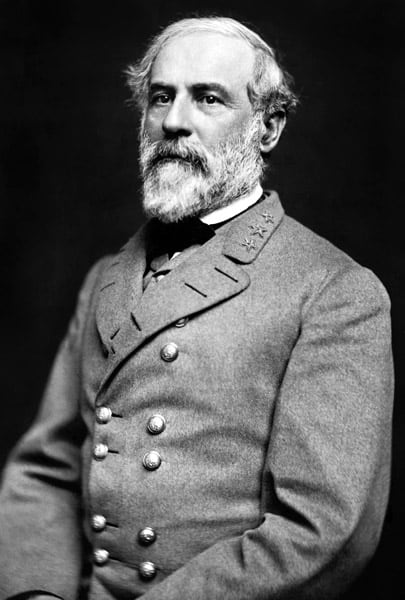Violence on Campus: What Would Robert E. Lee Do?
Mark Jarrett, American Thinker, August 23, 2017

Confederate General Robert E. Lee after surrender at Appomattox Courthouse. (Credit Image: © Julian Vannerson/Planet Pix via ZUMA Wire)
With statues of Robert E. Lee being torn down all over, it’s fair to wonder how he would have reacted to today’s mob violence. As it happens, we have some sense of how he might react to spontaneous racially tinged violence because after defeat and reconciliation, he became a college president of what is now Washington and Lee University in Lexington, Va.
This put him in charge of restless males during their years of peak testosterone, and at a politically charged historical moment, to boot.
While he was a college president, a number of his students were involved in altercations with African-Americans in a nearby town. Once, an African-American shot and nearly killed a student. The students, nearly all veterans, talked of lynching. Lee put a stop to that with a few judicious words. Two other incidents illustrate the point: one of his students, without provocation, grabbed and insulted a civil rights activist. Lee expelled the student. A few others attempted to break up a political gathering of African-Americans. Those involved were also expelled personally by General Lee. When asked what the rules of the college were, he had but one rule: “Be a gentleman.”
We can see from his actions that Lee would not have approved of the violence that occurred in Charlottesville or was seen recently on campuses. But Lee was not a social injustice warrior. Robert E. Lee expected his students to be orderly and courteous in a changing world. He did not tolerate disorder. He also focused his students’ education on those courses that had applications in the practical world – engineering, business, journalism. I think it is fair to speculate that he would have seen no sense in parents spending their life savings on a gender studies degree.
Obviously, we live in different times, but instead of shunning the man, college presidents today would do well to consider his example.















